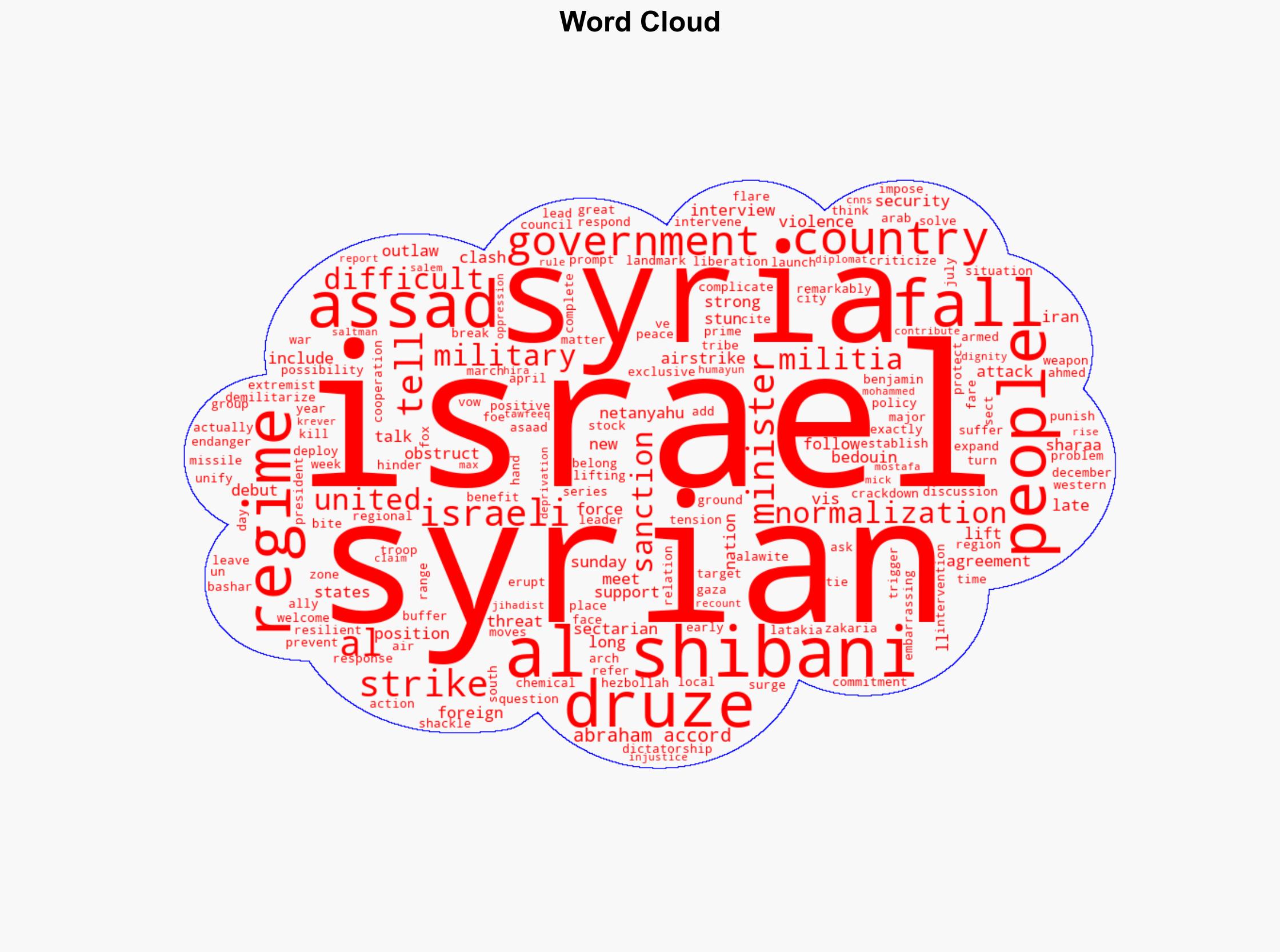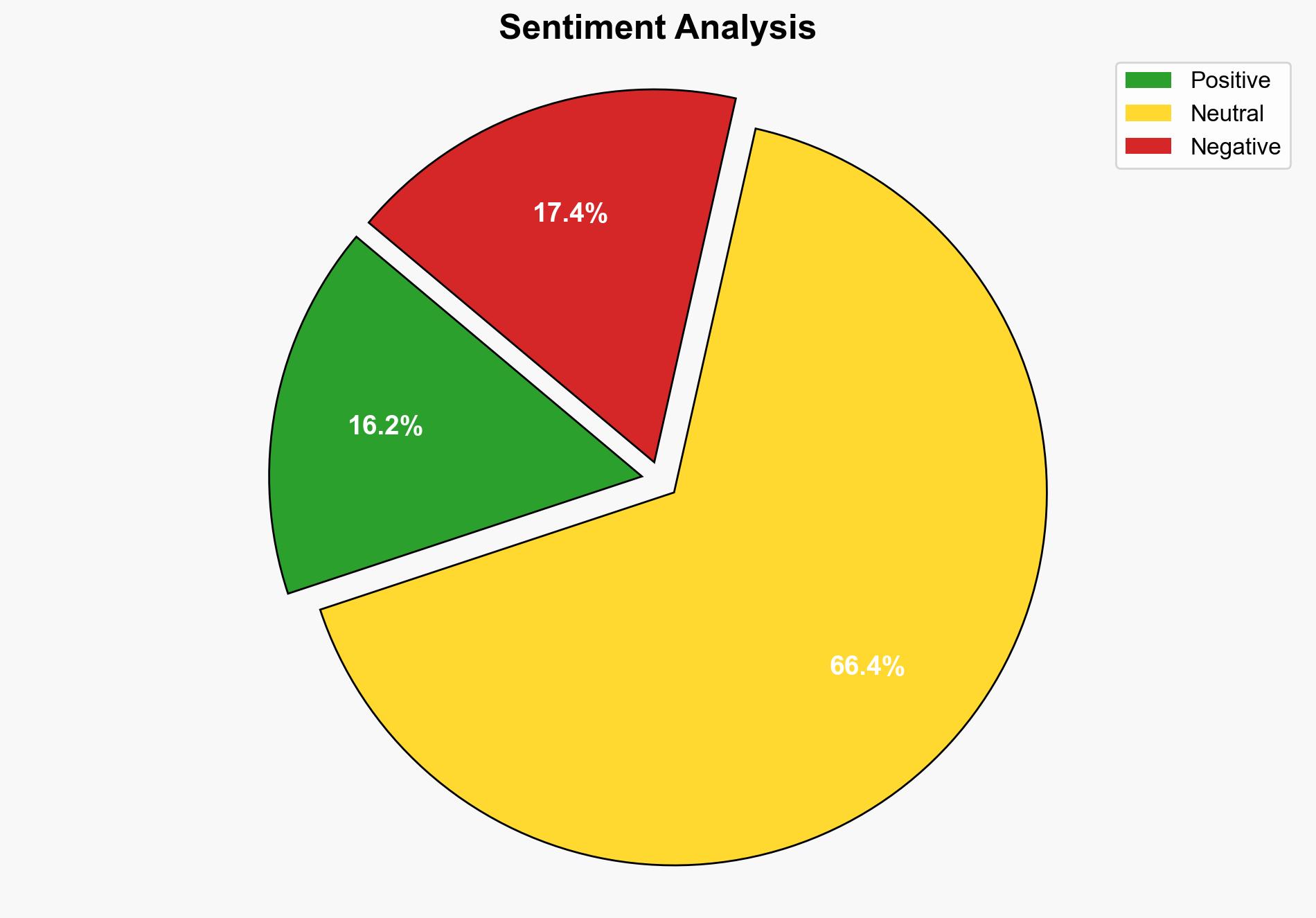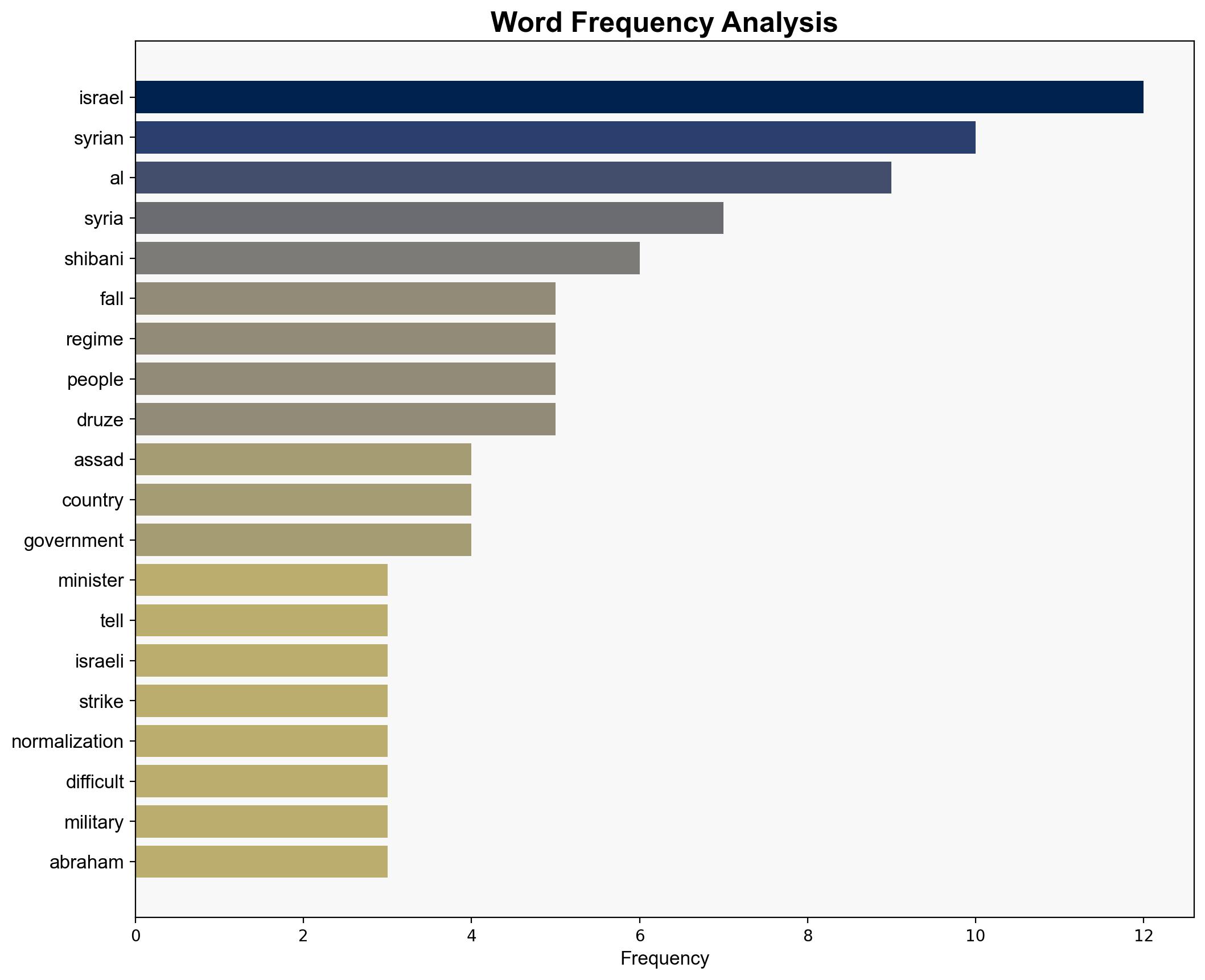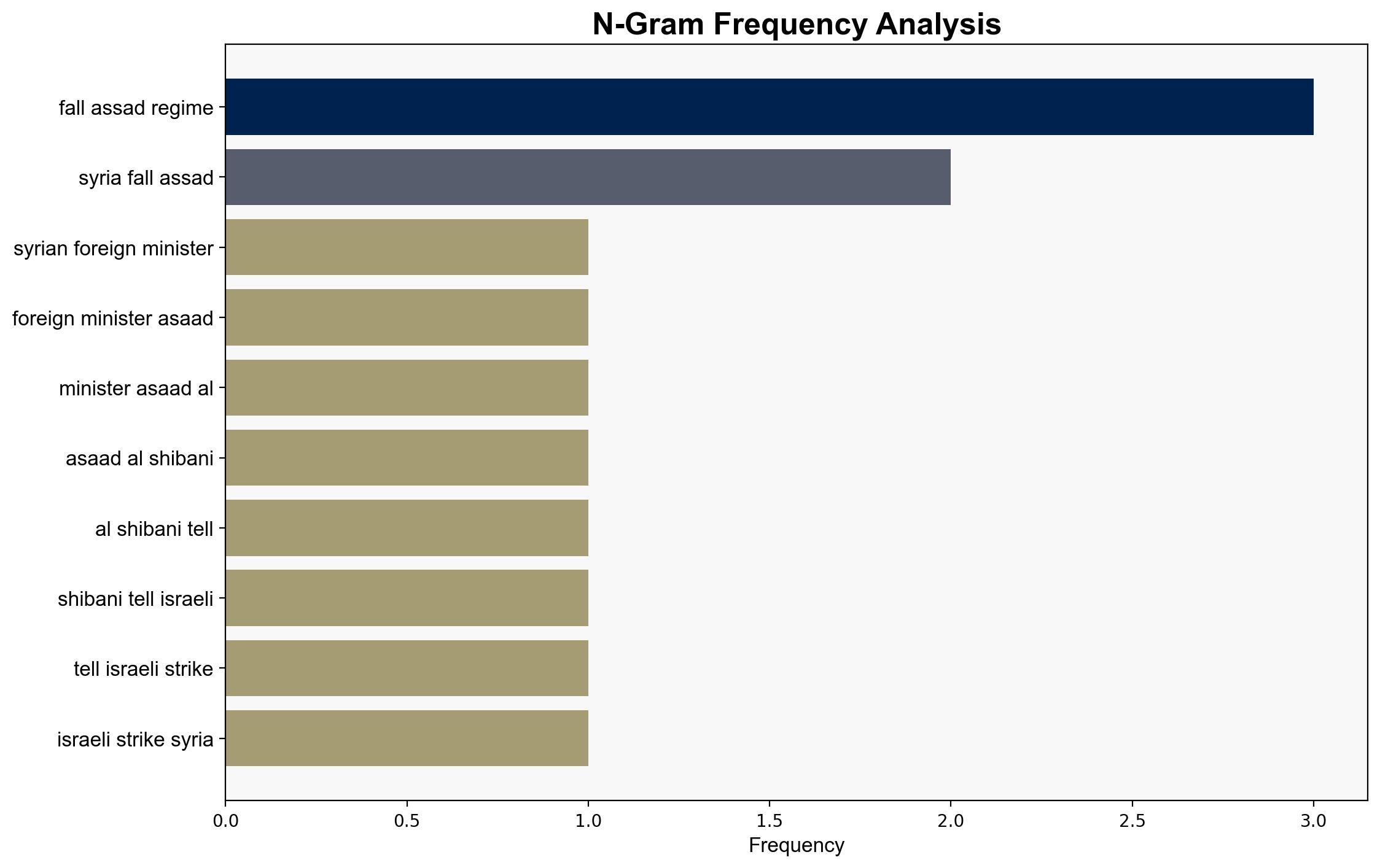Israeli strikes left Syria stunned and makes normalization difficult Syrian foreign minister says – CNN
Published on: 2025-09-28
Intelligence Report: Israeli strikes left Syria stunned and makes normalization difficult Syrian foreign minister says – CNN
1. BLUF (Bottom Line Up Front)
The Israeli airstrikes in Syria have heightened tensions, complicating potential normalization efforts between Syria and Israel. The most supported hypothesis suggests that these strikes are part of a strategic effort by Israel to counter Iranian influence and protect regional security, rather than solely a response to Syrian internal dynamics. Confidence level: Moderate. Recommended action: Monitor regional alliances and prepare for potential shifts in diplomatic stances.
2. Competing Hypotheses
1. **Hypothesis A**: Israeli strikes are primarily aimed at countering Iranian influence and protecting regional security, with normalization talks being secondary.
– **Supporting Evidence**: The strikes targeted military assets linked to Iran and Hezbollah, both adversaries of Israel. Israel’s historical stance on preventing Iranian entrenchment in Syria supports this hypothesis.
2. **Hypothesis B**: The strikes are a reaction to internal Syrian dynamics, specifically the sectarian violence and potential regime instability, which could spill over and affect Israeli security.
– **Supporting Evidence**: The strikes coincided with internal clashes in Syria, and the Syrian foreign minister’s emphasis on sectarian violence suggests a link between internal instability and Israeli actions.
3. Key Assumptions and Red Flags
– **Assumptions**: Hypothesis A assumes Israel’s primary concern is Iranian influence, while Hypothesis B assumes internal Syrian dynamics directly threaten Israeli security.
– **Red Flags**: Lack of direct evidence linking Israeli strikes to specific Iranian activities at the time. Potential bias in Syrian statements aiming to shift blame externally.
– **Blind Spots**: Limited information on the internal decision-making processes within the Israeli government regarding the strikes.
4. Implications and Strategic Risks
– **Geopolitical Risks**: Escalation of Israeli-Iranian tensions could lead to broader regional conflict, drawing in other actors such as Russia or the United States.
– **Economic Risks**: Prolonged instability may disrupt regional trade routes and energy supplies.
– **Psychological Risks**: Increased sectarian violence could exacerbate refugee flows, impacting neighboring countries.
5. Recommendations and Outlook
- Enhance intelligence-sharing with regional allies to better understand Iranian movements in Syria.
- Engage in diplomatic efforts to de-escalate tensions and explore backchannel communications between Israel and Syria.
- Scenario Projections:
- Best Case: De-escalation through diplomatic channels leads to renewed normalization talks.
- Worst Case: Escalation leads to direct conflict involving multiple regional actors.
- Most Likely: Continued low-intensity conflict with sporadic diplomatic engagements.
6. Key Individuals and Entities
– Asaad Al Shibani
– Benjamin Netanyahu
– Ahmed Al Sharaa
7. Thematic Tags
national security threats, regional focus, counter-terrorism, geopolitical dynamics





